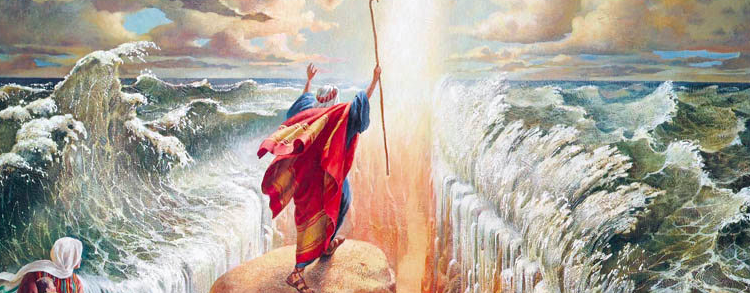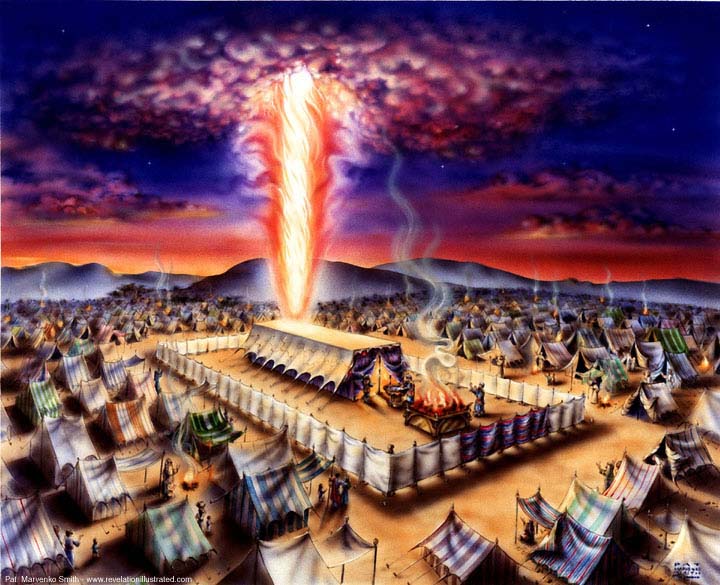
Introduction:
Have you ever heard of the saying: “time flies when you're having fun?" In our "Bird's eye view" of the Bible, we have traveled through over 3,000 years of time through the first book of the Bible. For readers interested in reviewing the series from the beginning, they can click on the following links listed below.
1. Introducing a bird's-eye view of the Bible. http://www.growingchristianresources.com/2020/01/introducing-birds-eye-view-of-bible.html
2. Bird's-eye view of the Bible - theme of creation. http://www.growingchristianresources.com/2020/01/birds-eye-view-of-bible-theme-of.html
3. Bird's-eye view of the Bible - theme of the patriarchs - salvation revealed through Abraham, Isaac and Jacob.
http://www.growingchristianresources.com/2020/02/birds-eye-view-of-bible-theme-of_9.html
 The Book of Genesis covers more time than all the other books of the Bible put together. If we were to do a "count down" of the major truths explored in the last several posts so far, we could note them as follows:
The Book of Genesis covers more time than all the other books of the Bible put together. If we were to do a "count down" of the major truths explored in the last several posts so far, we could note them as follows:FOUR. Four major men: Adam, Noah, Abraham and Jacob.
THREE. Three themes: creation, catastrophe and patriarchs.
TWO, Two major covenants: covenant of works (broken by Adam) & grace (spoken to Eve, expressed in different forms to Noah and Abraham).
ONE, One Creator and Redeemer: God
Our next theme will cover four books of the Bible (Exodus, Leviticus, Numbers and Deuteronomy) and span 120 years of time. This next theme, "redemption", will feature God's calling of one man to lead what would become the nation of Israel, namely, the man we know as "Moses".
1. What redemption means and how God is the Redeemer of His people.

Whenever we talk about "redemption", we refer to purchasing back what rightfully belongs to the purchaser. Perhaps you've heard of what are called, "coupons". Whenever I give a coupon to a clerk at a grocery store, I am getting the given item at a reduced price. Whenever I hand in that coupon, it is called, "redeeming the coupon", since the store will send the coupon away to the manufacturer to get a preset amount of money. The store is able to save me money because of an agreement made way before I went to the store. When we think of God’s plan of salvation, the agreed upon purchase price (the Son sent to earth to live as a man, die, rise from the dead) was made between God the Father, Son and Holy Spirit in eternity (Ephesians 1:11; 2 Timothy 1:9; Titus 1:2). In order to receiving the salvation already accomplished, I must receive all Jesus has done and is by faith (Ephesians 2:8-9).

The redemption revealed by God was planned in eternity and made known in history – as we see revealed in the Bible. Genesis 12-50 records the history of Abraham and the Jewish people. The Jewish people descended from Abraham, Isaac and Jacob become a large group of people in Egypt. Jacob had to take his family to Egypt due to a famine. Jacob's sons had sold their brother, Joseph, into slavery in Egypt years prior to the famine. God orchestrated that Joseph would rise to second-in-command in Egypt so as to take care of all the people and his family once they arrived in Egypt (Genesis 37-50). God was involved in all these events, as plainly stated by Joseph in Genesis 50:20 - "what you meant for evil, God meant for good".

Whenever we arrive in the book of Exodus, 430 years has passed between the days of Abraham and the time of Moses (see Galatians 3:17). The Jews, as we mentioned earlier, are enslaved by the Egyptians. The big pyramids you have seen in pictures of Egypt were likely built in part by the Hebrew people. They all were praying very hard to God for their freedom, with Exodus 1 stating: "and God heard their cry". God prepared a man whom He would use to redeem the people out of Egypt into the freedom that comes in knowing God - that man's name was, "Moses".
2. Moses, called by God to redeem a people in slavery

Moses' very name would come to describe the way God was going to use him (literally, “one who is drawn out"). As we observe in Exodus 1-2, when Moses was a baby, Pharaoh had made a law that all first-born Hebrew (that is, Jewish) males were to be killed. Moses' mother had his sister hide him in a basket which was specially prepared to float down the biggest river in Egypt - The Nile. As God planned it, Pharaoh's daughter found little Moses and instantly adopted him as her own son.

As a princess, Pharaoh's daughter hired a woman to help her take care of little Moses. Again, God's work was involved - for the very woman hired by Pharaoh's daughter was none other than Moses' own mom! Pharaoh's daughter named him "Moses" because, she said: "I drew him out of the water".
We can conveniently divide his life (totaling 120 years) in three 40-year periods. Each 40-year period of Moses' life represents a major stage in his experience of God as God redeemed Moses and the Jewish people. As we look at Moses' life, you will find some applications for your own.
3. God's redemption involves preparing His people for carrying out His calling on their lives.

In the first 40 years of Moses' life, we find God preparing Moses. God used Moses' mother to speak the words of God into him. Moses knew he wasn't an Egyptian. Instead, he understood himself as a Hebrew - a descendant of Abraham, Isaac and Jacob. God also used the education and royal court life to teach Moses valuable leadership skills that he would need later when leading Israel in the desert. God also used Moses' passion to alert him to the needs of his fellow Hebrews.
Are you in the stage of life where God is preparing you? God's work of redemption not only involves "saving you from" sin and judgement, but also "saving you unto" a new life with God. As God was redeeming the Jewish people to follow Him as a people, He also redeemed Moses from the shame of the past to prepare him to do what God called him to do.
4. God's redemption includes maturing His people to grow in their relationship with Him.

Moses lived in Egypt for the first 40 years of his life. He was prepared by God in the gaining of skills he would need much later in life. However, Moses needed to mature. He one day observed an Egyptian officer beating a Hebrew slave (Exodus 2:11-14). Moses' anger arose within his heart. He murdered the Egyptian, hiding him in the desert sand. Soon, everyone, including Pharaoh, knew about Moses' act. Consequently, Moses fled from Egypt into a dry desert called "Midian". Moses would get married and shepherd sheep for his father-in-law Jethro for 40 years.
This second 40-year period of time was God's way of taking Moses from preparation to maturation. Moses needed to learn how to serve before he could lead. He needed to develop skills for shepherding sheep before he could ever shepherd people. He had to harness that temper of his rather than let it get the better of him (which he still struggled with once he led Israel). He had to understand life in the wilderness, since he would lead an entire nation through a wilderness for the final 40 years of his life. Most important to Moses' second 40-year period of maturing was finding contentment in being alone to gain sensitivity to the things of God.
If you are a Christian, you should be in the process of maturing and growing in your faith. When Jesus purchased your salvation on the cross, the work God would do in maturing every believer was included in that redemption (see 1 Corinthians 1:30). In Egypt, Moses relied on what he could possibly do. In that wilderness, shepherding his father-in-law's sheep, Moses was matured to understand that, by himself, he could do nothing unless God were with Him. Many of the same sort of lessons are given to Christians, such as "I can do all things through Christ who gives me strength" (Philippians 4:13). God will use tough times, relationships, His Word, prayer, church and circumstances to grow us in our faith (see 2 Corinthians 4:16-18; Ephesians 4:11-12; 1 Peter 1:6-7).
5. God's redemption aims to launch His people to fulfill His calling on their life.

The third 40-year period of Moses' life was where God launched Moses to fulfill God's calling on his life. Whenever we speak of God's calling, we refer to that urgent impulse in our hearts that makes clear our purpose on the planet. Let me ask you: "have you ever thought about what your purpose on this planet?" Stated another way: "why does God have you here?" God has some of you reading this post in a stage of preparation right now. As you grow, He will mature you to be the man or woman of God He is calling you to be. There will come that moment, like Moses, when God's preparation and maturity of you becomes a launching of you to fulfill His calling on your life.

Moses' day of launching had come in the form of God speaking to him by a burning bush. It was a day like any other - except for one obvious detail - a desert bush was on fire but was not getting burned up! Finally! Moses had an exciting event in his otherwise same, daily routine of leading sheep from one grassy spot to another. Moses walked over to check out why the bush was not incinerated by the blazing fire when, suddenly, a booming voice echoed from the bush! God Himself spoke to Moses, revealing to Moses that He alone was God and that He had heard the cries of His people (Exodus 3:7-14).
God launched Moses by telling him His personal Divine name (“I am who I am” or “Yahweh”). Furthermore, He had a job for Moses to do: "go tell Pharaoh to let my people go". Moses made excuses for why he was not the right man for the job, however, God convinced a reluctant prophet (Exodus 4:10-17). So, Moses went back to Egypt, reunited with his family and his people. God worked ten plagues through Moses and his brother Aaron, yet, Pharaoh would resist their requests to release the people from slavery. It was the final plague that had Pharaoh seemingly surrender, letting Moses and the people flee from Egypt

However, Pharaoh changed his mind and commanded his armies to pursue the nearly 2 million Hebrew people and Moses, who were nearing the Red Sea (Exodus 14). God did a miracle and parted the Red Sea so that Moses and the people could cross on dry ground to the other shoreline. As soon as it became daybreak, Pharaoh and his armies were beginning to cross when Yahweh (remember, that is God’s personal name) caused the Red Sea to drown the Egyptian army. The Exodus was complete. The Hebrew people were no longer slaves of Pharaoh. Now they were the treasured possession of God Himself (Exodus 20:1-2). However, the journey through the desert was going to begin.

God revealed to them their identity, the ten commandments and the place they would worship Him - called "the tabernacle". God would provide food by raining bread from the sky (called "manna"). Sadly, the people complained and sinned greatly against God and Moses. The remaining forty years from the giving of God's law at Mount Sinai until they reached the Eastern banks of the Jordan River involved wandering through a wilderness. The trip should had taken about two weeks, yet, the sin of the people cost 40 years. Furthermore, at one point, Moses' temper got the best of him and God prevented him from entering the promised land.
:max_bytes(150000):strip_icc()/Moses-and-the-Ten-Commandments-GettyImages-171418029-5858376a3df78ce2c3b8f56d.jpg)
Just as Adam and Eve had broken the first Covenant given by God, with consequences of sin, death and separation from God, so we find Israel breaking God’s covenant with them. The account of Israel wandering through the wilderness was due to their heeding the advice of spies sent by Moses to survey the promised land which God had told them to eventually travel. Whenever the twelve spies returned, ten of the twelve said it was an impossible journey. The people listened to the advice of the ten spies. Consequently, that particular generation was forbidden by God to enter the promised land (see Numbers 13).
The failure of the ancient Israelites echoes what we saw back in Genesis 3. Thankfully, God's basis for the salvation of His people was not rooted in the Law, but rather in His loving grace He revealed when He rescued them from Egypt. Furthermore, God made a covenant with Abraham to bring about a nation, which He had no intention of breaking. Moses would conclude the final months of his life preaching to the people to continue following God by faith as they heeded the commands God gave them. Moses, the man of God, died at 120. A remarkable stage in Israel's history was done.
